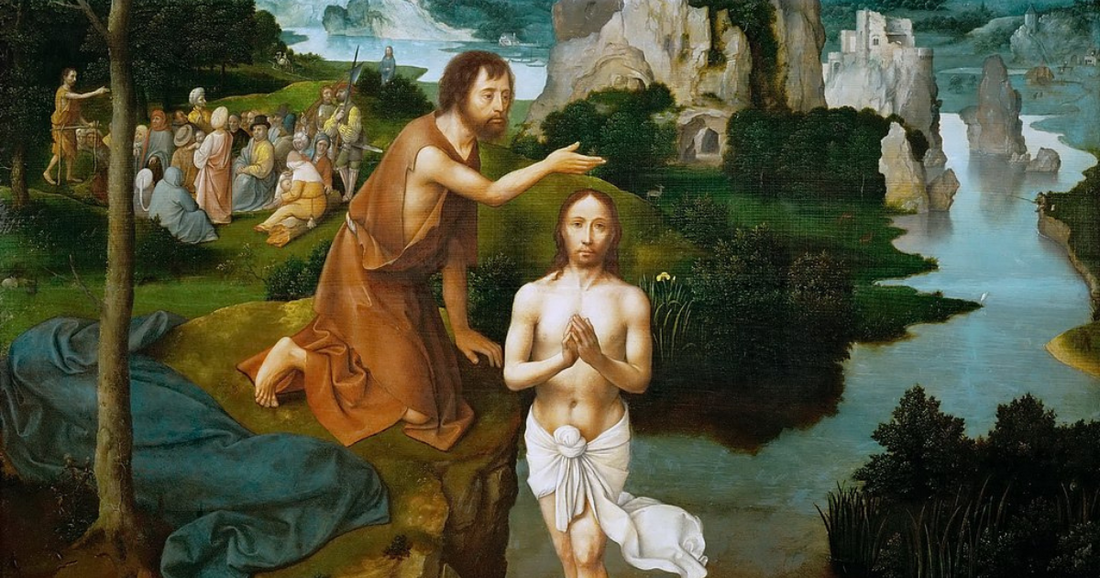
The Pathways of Repentance
The Ascension TeamWhat does it mean to repent and convert? As disciples, it is our desire to live in conformity with Christ. Mike “Gomer” Gormley shares how in order to be in conformity with Christ, we must repent and we must convert. It is repentance and conversion that lie at the heart of ongoing growth in Christ.
Snippet from the Show
It takes courage to admit when you are lost and are in need of God’s grace and mercy.
Recap
Last week we talked about suffering and discipleship. Jesus commands us to pick up our crosses daily and follow him, to deny ourselves, to hate father and mother and even our own lives or else we will not be worthy of him. We talked about:
- Suffering makes you untouchable by the powers of this world.
- There are 3 levels of resignation to suffering: the philosophical, that makes one virtuous; the christological, where he bought us our salvation; and the sanctifying, where we enter his redemptive suffering for ourselves
- Suffering willingly produces the fruits of Maturity, Humility, Compassion, Dependence on Grace, and True Theology, which is the life of the Trinity
This Week’s Question
What does it mean to repent and convert?
Solution
Jesus came into the world to seek and save the lost. You and I are born into a fallen world, where we are alienated from the world, the flesh, others, and within ourselves. The quest of the Christian life is to be in conformity with Christ. This is where repentance and conversion lies at the heart of ongoing growth in Christ.
Part One: Jesus Describes his Mission
One of the questions debated in the Middle Ages was “Would Jesus have become incarnate if Adam and Eve had not sinned?” Duns Scotus tells us, “Yes, but not as Savior, yet still as the crown of creation. We don’t know this sinless world. We only know our world.”
- Luke 19:9 And Jesus said to him, “Today salvation has come to this house, since he also is a son of Abraham. For the Son of man came to seek and to save the lost.
- Mark 1:4 John the Baptist was preaching a baptism of repentance for the forgiveness of sins.
- Mark 1:15 “The time is fulfilled, and the kingdom of God is at hand; repent and believe in the gospel.”
- Mark 6:12, the mission of the Twelve were sent out two-by-two, with Christ’s authority, and it says, “So they went out and preached that men should repent.”
Frank Sheed wants to apply this to our Modern World: we don’t know where we are, where we are going, and how to get there. We don’t even bother to wonder why we are lost.
- “One feels almost physically the what-the-hellness of life…” Everything is futile and we feel this futility and remedy it by indulgence in the body’s appetites.
- Jesus, meek and mild, is not the right type of man to help us in a crisis. But this is the Jesus of the Old Masters and hymn writers, not the Gospel writers.
- “Heaven is not longed for and Hell is not feared.”
Part Two: What Does Repentance Actually Mean?
Strong’s Exhaustive Concordance:
- To change one's mind, i.e. to repent
- To change one's mind for better, heartily to amend with abhorrence of one's past sins
μετανοέω metanoéō, met-an-o-eh'-o; from G3326 and G3539; to think differently or afterwards, i.e. reconsider (morally, feel compunction):—repent.
Jimmy Akin: The Greek word for “repentance”—metanoia—does come from roots that can mean “change” (meta-) and “mind” (nous), but the roots of a word do not determine its meaning. The way a word is used does. Scripture makes it clear that if we wish to be saved from our sins, we need to turn from them—not just recognize them as sins.
Trent Horn: The Greek word we translate as “repentance” is metanoia (the verb “to repent” is metanoeo), and it means “to change your mind.” Metanoia’s Hebrew counterpart is tshuva, which means “to return.” For example, God told the people of Israel, “Repent and turn away from your idols; and turn away your faces from all your abominations” (Ezek. 14:6). So, when Jesus says, “Repent
Catechism Quotations
Paragraph 1432 The human heart is heavy and hardened. God must give man a new heart. Conversion is first of all a work of the grace of God who makes our hearts return to him: "Restore us to thyself, O LORD, that we may be restored!" God gives us the strength to begin anew. It is in discovering the greatness of God's love that our heart is shaken by the horror and weight of sin and begins to fear offending God by sin and being separated from him. The human heart is converted by looking upon him whom our sins have pierced…
Paragraph 1427 Jesus calls to conversion. This call is an essential part of the proclamation of the kingdom…
Paragraph 1429 St. Peter's conversion after he had denied his master three times bears witness to this. Jesus' look of infinite mercy drew tears of repentance from Peter and, after the Lord's resurrection, a threefold affirmation of love for him.
Paragraph 1431 Interior repentance is a radical reorientation of our whole life, a return, a conversion to God with all our heart, an end of sin, a turning away from evil, with repugnance toward the evil actions we have committed. At the same time it entails the desire and resolution to change one's life, with hope in God's mercy and trust in the help of his grace. This conversion